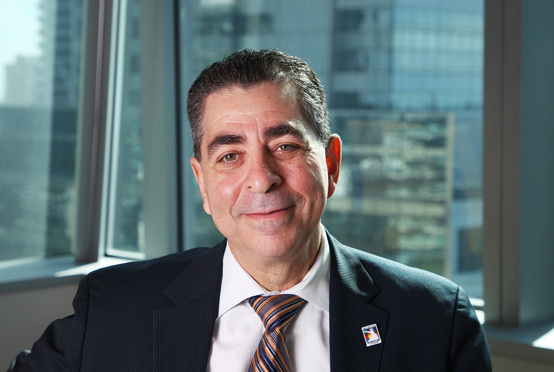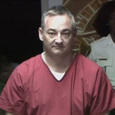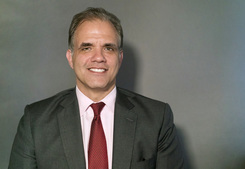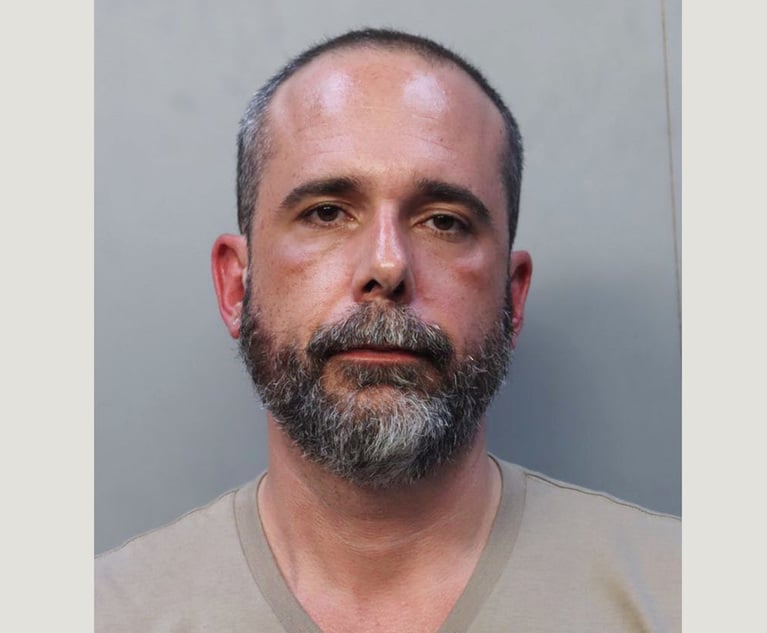'My Heart Breaks': Lawyers React to Miami-Dade Judge's Suicide
Past and present Florida Bar presidents Michael J. Higer and Michelle Suskauer, and litigation director of the Disability Independence Group in Miami, Matthew Dietz, discuss mental health in the wake of Judge Timothy Maher's suicide.
August 29, 2018 at 02:42 PM
6 minute read
 Michael J. Higer of Berger Singerman, Miami. Photo: J. Albert Diaz/ALM
Michael J. Higer of Berger Singerman, Miami. Photo: J. Albert Diaz/ALM
When federal Social Security Judge Timothy Maher, 51, ended his life Aug. 24 after taking hostages and having a 10-hour standoff with police, he left the legal community in shock.
“My heart breaks,” said Michael J. Higer of Berger Singerman in Miami and immediate past president of the Florida Bar. ”My heart breaks for the judge, for his family, for those police officers who had to come to the scene and risk their lives, and for everybody who was in contact with him. All those situations and encounters that led up to the ultimate incident are incredibly heartbreaking and sad.”
 Related: Federal Judge Kills Himself in Standoff With Police
Related: Federal Judge Kills Himself in Standoff With Police
Until Aug. 14, when Maher was arrested for allegedly threatening his ex-girlfriend with a rifle a week before his death, he appeared to be quietly and diligently doing his job at the Office of Disability Adjudication and Review in downtown Miami.
Users in the public comments section of that agency's website described the judge as “compassionate,” “impartial” and “fair.”
“Judge Maher is an intelligent and compassionate public servant,” said one comment from 2013. “He clearly takes his responsibilities as a judge seriously. He is fair to the plaintiff and to the taxpayer in reaching his decisions. We need more judges like him.”
 Judge Timothy Maher. Photo: courtesy of Miami-Dade courts.
Judge Timothy Maher. Photo: courtesy of Miami-Dade courts.Related story: The Last Days of Judge Timothy Maher: What Led a Federal Jurist to End His Own Life?
'No Cast to Mend a Broken Bone'
The way Higer sees it, Maher was likely “extremely stressed” in the years leading up to the incident.
“I'm sure that as people look under the veneer of what happened, ultimately, they'll see a very troubled person and they'll see a pattern that led to this day. There will be multiple warning signs, I'm sure, that this didn't happen out of nowhere,” Higer said.
Suicide, according to Higer, doesn't boil down to one act on a single day.
“That guy did not wake up and say, 'Today's the day.' This was something that was building for this guy for many years,” Higer said. “Just think what a dark place he must have been in. Because for all accounts, up until very recently he was a very high-functioning, well-liked, well-balanced judge.”
Higer recalled a debate he had with an Uber driver recently over whether a homeless person they'd seen on the street was capable of turning his life around and getting a job.
“You don't know what other things might be debilitating for that person, and I think, unfortunately, that's the same thing for this judge and for other folks who oftentimes suffer in a way that's hard to see,” he said. “Because there's no cast to mend a broken bone that applies here.”
'No one is immune'
 Michelle Suskauer, Florida Bar President. Courtesy photo.
Michelle Suskauer, Florida Bar President. Courtesy photo.Florida Bar President Michelle Suskauer, who has prioritized wellness during her term, said “no one is immune” to stress and mental issues in the legal profession.
“To be involved in an incredibly adversarial and stressful professional and not be touched by it is impossible,” Suskauer said.
As a criminal defense lawyer at Dimond Kaplan & Rothstein in West Palm Beach, Suskauer deals with a host of client crises at ungodly hours of the day.
“I sleep next to my phone. That does not lead to a relaxing existence,” she said. “With technology, we are tethered to our practices 24/7. But (my clients) are in a very difficult situation, often the worst of their lives, and they're looking to you to deal with that crisis immediately.”
Suskauer's husband, Palm Beach County Circuit Court Judge Scott I. Suskauer, serves in the family division.
“Talk about a sense of stress and crisis,” the bar president said. “We're expected to solve these issues, putting our own lives aside to focus on how we solve these immediate problems for our client. So we often internalize all of the stress that we're seeing in others and focusing on our jobs.”
For these reasons, Suskauer has continued to build upon efforts by her predecessor, Higer, as bar president to break down the stigma attached to mental illness.
The Florida Bar established a Mental Health and Wellness Committee in 2017, aimed at educating lawyers on mental illness and recommending help and best practices.
'The Specter'
 Matthew Dietz, founding member and litigation director for the Disability Independence Group Inc. Courtesy photo.
Matthew Dietz, founding member and litigation director for the Disability Independence Group Inc. Courtesy photo.Matthew Dietz, litigation director of Disability Independence Group Inc. in Miami, thinks a policy overhaul is in order for stressed legal professionals.
“The difficulty that judges and all lawyers have is how to handle and how to disclose mental health issues,” Dietz said. “The issue with state judges, for example, is if you do have an issue that may affect your competence to be a judge, the (Judicial Qualifications Commission) really has the ability to do an invasive investigation of the judge's ability. And that seems to make people hesitate over whether or not they are going to disclose something, or whether they are going to seek help.”
The stigma is such that, according to Dietz, that “if you do get mental health treatment, you're an incompetent judge or you're an incompetent lawyer.”
Related: He Got Help for Mental Illness. Now He Says Florida Bar Examiners Are Using That Against Him
“Can a judge cut it when they have hundreds of cases on his or her docket? Dietz said. “What is the stress in dealing with absolutely annoying and obnoxious attorneys like we are on a daily basis? How do you do that?”
It's not yet clear whether Maher sought any form of help in the weeks or months leading up the standoff, but the idea of facing scrutiny from the JQC could likely have dissuaded him from doing so, according to Dietz.
“The specter of having somebody who is not your treating psychiatrist or psychologist to invesitigate whether or not you're fit or competent to be a judge stops a lot of people, whether they're lawyers, law students or judges, from getting the help that they need,” he said.
Professionals under stress are urged to share the burden by calling the Florida Bar Mental Health and Wellness hotline: 800-282-8981.
This content has been archived. It is available through our partners, LexisNexis® and Bloomberg Law.
To view this content, please continue to their sites.
Not a Lexis Subscriber?
Subscribe Now
Not a Bloomberg Law Subscriber?
Subscribe Now
NOT FOR REPRINT
© 2025 ALM Global, LLC, All Rights Reserved. Request academic re-use from www.copyright.com. All other uses, submit a request to [email protected]. For more information visit Asset & Logo Licensing.
You Might Like
View All
Auto Dealers Ask Court to Pump the Brakes on Scout Motors’ Florida Sales
3 minute read
Saul Ewing Loses Two Partners to Fox Rothschild, Marking Four Fla. Partner Exits in Last 13 Months
3 minute read
Trending Stories
- 1Bar Report - Feb. 10
- 2Morgan Lewis Adds 4 IP Partners in Orange County, 1 in Seattle
- 3Delaware DOJ's Hume Is Named Newest Magistrate In Chancery
- 4Trade Wars: Five Tips for Legal Teams to Manage Tariffs and Trade in Trump II
- 5Balancing Attorney-Client Privilege With a Lawyer’s Right to Defend Against Allegations of Wrongdoing
Who Got The Work
J. Brugh Lower of Gibbons has entered an appearance for industrial equipment supplier Devco Corporation in a pending trademark infringement lawsuit. The suit, accusing the defendant of selling knock-off Graco products, was filed Dec. 18 in New Jersey District Court by Rivkin Radler on behalf of Graco Inc. and Graco Minnesota. The case, assigned to U.S. District Judge Zahid N. Quraishi, is 3:24-cv-11294, Graco Inc. et al v. Devco Corporation.
Who Got The Work
Rebecca Maller-Stein and Kent A. Yalowitz of Arnold & Porter Kaye Scholer have entered their appearances for Hanaco Venture Capital and its executives, Lior Prosor and David Frankel, in a pending securities lawsuit. The action, filed on Dec. 24 in New York Southern District Court by Zell, Aron & Co. on behalf of Goldeneye Advisors, accuses the defendants of negligently and fraudulently managing the plaintiff's $1 million investment. The case, assigned to U.S. District Judge Vernon S. Broderick, is 1:24-cv-09918, Goldeneye Advisors, LLC v. Hanaco Venture Capital, Ltd. et al.
Who Got The Work
Attorneys from A&O Shearman has stepped in as defense counsel for Toronto-Dominion Bank and other defendants in a pending securities class action. The suit, filed Dec. 11 in New York Southern District Court by Bleichmar Fonti & Auld, accuses the defendants of concealing the bank's 'pervasive' deficiencies in regards to its compliance with the Bank Secrecy Act and the quality of its anti-money laundering controls. The case, assigned to U.S. District Judge Arun Subramanian, is 1:24-cv-09445, Gonzalez v. The Toronto-Dominion Bank et al.
Who Got The Work
Crown Castle International, a Pennsylvania company providing shared communications infrastructure, has turned to Luke D. Wolf of Gordon Rees Scully Mansukhani to fend off a pending breach-of-contract lawsuit. The court action, filed Nov. 25 in Michigan Eastern District Court by Hooper Hathaway PC on behalf of The Town Residences LLC, accuses Crown Castle of failing to transfer approximately $30,000 in utility payments from T-Mobile in breach of a roof-top lease and assignment agreement. The case, assigned to U.S. District Judge Susan K. Declercq, is 2:24-cv-13131, The Town Residences LLC v. T-Mobile US, Inc. et al.
Who Got The Work
Wilfred P. Coronato and Daniel M. Schwartz of McCarter & English have stepped in as defense counsel to Electrolux Home Products Inc. in a pending product liability lawsuit. The court action, filed Nov. 26 in New York Eastern District Court by Poulos Lopiccolo PC and Nagel Rice LLP on behalf of David Stern, alleges that the defendant's refrigerators’ drawers and shelving repeatedly break and fall apart within months after purchase. The case, assigned to U.S. District Judge Joan M. Azrack, is 2:24-cv-08204, Stern v. Electrolux Home Products, Inc.
Featured Firms
Law Offices of Gary Martin Hays & Associates, P.C.
(470) 294-1674
Law Offices of Mark E. Salomone
(857) 444-6468
Smith & Hassler
(713) 739-1250







